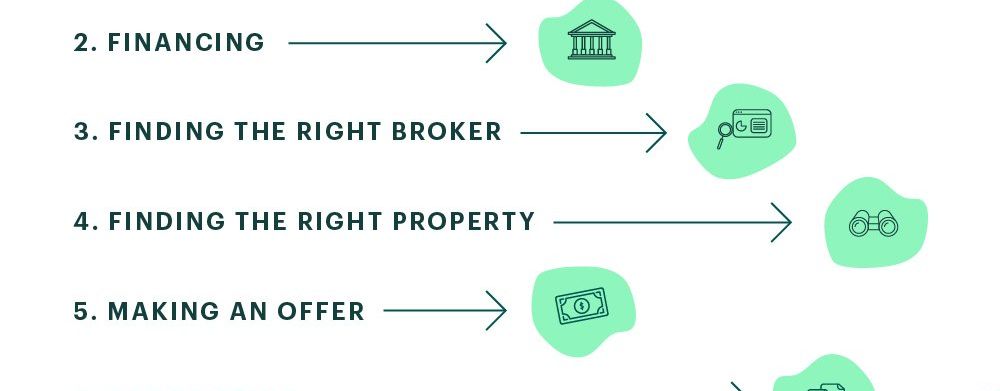How Long Does it Take to Buy a House?
Written by:
Patrick Boyaggi
Patrick Boyaggi
CEO an Co-Founder
Patrick is the Co-Founder and CEO of Own Up. He has a wealth of experience and knowledge as a mortgage executive.
See full bio

Watching a marathon, you’d think it was the simplest of sporting events. The participants just run for hours. But how many hours? Well, that depends. An elite male athlete on a fast course with good weather will likely finish in a little over 2 hours. A top college runner training with a running club could finish in around 3 hours. A fit recreational runner often takes closer to 3.5 hours, or more. The bulk of the runners start streaming in, like a school of fish, after the four-hour mark. So, what’s typical? The answer is another question: For whom?
The home buying timeline is equally hard to quantify, making it frustrating for first-time home buyers wanting to know how long it will take to find and move into their dream home. The answer is, like a marathon, it depends. Home buying is complicated. The paper stack is large, the checklist is long and the regulations are numerous. According to Ellie Mae, the leading technology provider for the mortgage finance industry, it averaged 44 days to close on a loan after your offer was accepted in June and July of 2019. This means the total home buying process can easily take over three months time once you add in time for house hunting and account for complications or hiccups along the way.
Just as marathoners plan for a longer time than expected and plant people along the course with high-energy snacks and drinks, home buyers should line up a team of people to help them find the home they want with the best mortgage possible. Planning ahead and understanding the steps won’t make the process less complicated, but it will make it less frustrating.
Finding Your Dream Home
Typical timeframe: 10 weeks with visits to about 10 different homes
House hunting is not only the start of the home buying process, but it can be the longest part of the journey. While the house search used to take an average of 7 weeks in 2001, it averaged 10 weeks as of 2018. Why so long? Because all buyers reported that finding the right house was the most difficult step in the entire process.
Technology has made the process a lot easier. Buyers can now search Zillow and other local real estate sites to learn about available properties and take virtual tours. Working with a real estate agent who is familiar with the local area will also speed up the process, especially for first-time buyers. Real estate agents often know about homes that are not yet listed but will soon be on the market. Look for an agent who is local, responsive to your criteria and inquiries, and does not pressure you to buy specific homes or work outside your preferred time frame. Some buyers even take the nontraditional route of approaching people whose house is not on the market, but which they would like to buy. If you do this, it is best to do so with help from a real estate agent.
You can also speed up the house hunting process by getting a mortgage pre-approval letter before you start your home search. This letter can be obtained in as little as 10 minutes. The letters show sellers you are serious and that you have the finances needed to purchase a home. In situations where multiple offers are being made on a property, having a mortgage pre-approval letter makes it more likely your bid will be chosen.
Still, even the best planned timeline can be slowed. There are numerous reasons why:
- In weak markets, there might not be a lot of homes to choose from.
- In hot markets, you might end of going to a lot of open houses and being on the losing end of bidding wars.
- Buyers who choose to forego a real estate agent can find it harder to navigate the process, despite the savings in commission payments.
- Buyers with busy jobs may be limited to nights and weekends, or even just weekends, for house hunting and open house visits.
Working with a real estate agent, buyers can lay out their desired approach and time frame to make the process as quick as possible.
Making an Offer
Timeline: Less than a week
Once you make an offer on a home, things start moving quickly. Sometimes, the seller will make a counter-offer. Once a purchase price is agreed on, you must then agree on a closing date and any contingencies that should be included in the purchase and sales agreement such as needed repairs or items to be included in the sale price.
Sellers usually have less than 48 hours to respond to an offer. In many markets, part of this negotiation involves an Earnest Money Deposit, a good faith deposit made by buyers to sellers to show they are serious about purchasing a home. That money must be transferred to the sellers as part of the offer.
Once an offer is accepted, the home buying process gets serious and much more complicated, starting with home inspections and obtaining a mortgage.
The Inspection and Appraisal Phase
Timeline: Over a week
When you buy a used car, you don’t assume it is in working order. Most people take it to their own mechanic for a checkup and use Kelly Blue Book or another site to make sure it’s priced right. The same goes for houses. Before you buy a home, you need to know two things: first, if its structurally sound (inspection) and second, if it is worth the selling price (appraisal).
Home inspectors search your future dream home from top to bottom for hidden problems. Common problems uncovered include:
- faulty wiring
- bad drainage
- roof issues
- foundation flaws
- and basement dampness, among others.
In some areas, tests for lead paint and/or radon are required. Buyers must then negotiate, with the help of a real estate agent, for the repairs on these items or for a reduced purchase price. If major repairs are needed, this could take much longer, or force cancellation of the sale. It takes about four days to write up the inspection report. Find a searchable list of home inspectors here.
The home appraisal is a simpler but equally important part of the process. The appraiser’s job is to determine if the home’s value meets or exceeds the price it is being sold at. Lenders request the appraisal. While the appraisal should take approximately a week to complete, low interest rates and lots of refinancing requests, along with a shortage of appraisers, can cause delays.
If the appraisal comes in below the selling price, a renegotiation with the both the seller and lender will be needed, adding more delays.
Getting a Mortgage
Timeline: 45-60 days
Banks are lending you a lot of money, so they want to make sure you can repay the loan. Be prepared with all the needed documentation for your mortgage lender or private broker. Conventional loans are processed more quickly, while VA and FHA loans take longer to close because the loans are riskier and buyers are generally putting down less money.
The mortgage process is as follows:
- To lock a mortgage interest rate, buyers must submit pay stubs, bank statements and other financial documents. The lender will pull your credit score and will determine if your down payment is enough. This can be done in one day.
- After the underwriting is approved, you move into the closing process where documents including the appraisal and home inspection are pending. This can take one to three weeks.
- Finally, the loan is cleared and moves to the closing process. It then takes 2 to 10 days to send the money and close on your new home.
Last Steps
Mortgage in hand, buyers are only a few steps away from getting the keys to their new home. But first, you need to arrange for homeowner’s insurance. This insurance is required by your lender and protects your new asset in case of natural disaster or against cases where people are injured on your property.
The final step in the process is setting a closing date. Your lender will send you an itemized statement of closing costs, down payment and any other charges. The closing itself takes an hour or so and generally involves signing your name to reams of paper. Closing can be done remotely, but most states require original, and sometimes notarized signatures, on closing documents.
The home buying process is a marathon, not a sprint. While some people will choose to act quickly if prices are low and/or mortgage interest rates might soon be going up, others will wait to find the right house or more interest rates fall more. Lenders will lock in an interest rate for a period of time, and buyers need to be cognizant of this restraint. Then they should take off running, but not quickly.
Own Up has helped thousands of buyers navigate the home buying process. Own Up promises believes education is the key to empowering home buyers to make the best decisions and find the best mortgage for them. If you are starting the home buying process, or even just thinking about it, give us a call. We’d love to be your co-pilot.


